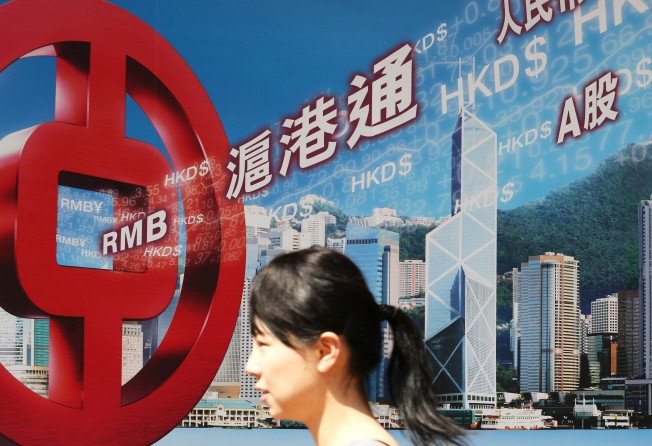IPO connect may attract more overseas listings to Hong Kong but could spell trouble for H-shares
Regulatory differences between Hong Kong and mainland markets seen as a challenge for proposed IPO connect scheme

The proposed initial public offering connect between Shanghai and Hong Kong markets may well attract more international firms to list in Hong Kong, but it may also mean H-share listings become history.
Analysts also believe the plan would face many challenges in dealing with the regulatory differences on both sides of the border before it could be given the go ahead.
The new connect scheme, one of many proposed cross-border plans unveiled by Hong Kong Exchanges and Clearing chief executive Charles Li Xiaojia in a briefing on last Thursday, forms a core part of the three-year strategic plan for the local bourse.
Under the proposal, Li wants mainland investors to be able to subscribe to Hong Kong initial public offerings, while Hong Kong and international investors would be able to subscribe to initial public offerings in Shanghai.
“The stock connect scheme between Hong Kong and Shanghai now only allows investors to conduct cross-border trading in the secondary market but not the primary market. If we can expand the IPO connect for investors to conduct cross-border subscription of new share listings, it would further expand the tie between the two markets,” he said.
A major benefit of such scheme, Li said, is that Hong Kong would become attractive to many international firms. “Hong Kong now only has a few international firms listing here. This is because the pool of investors in Hong Kong is too small to attract big international brands. However, if we can have IPO-connect to allow mainland investors to subscribe to new listings in Hong Kong, many big international firms would consider listing here to capture mainland investors,” he said.
“This plan, if it can go ahead, will have a significant impact to the Hong Kong stock market for the long term,” Li added.
Louis Tse Ming-kwong, director of VC Brokerage, said the proposed IPO connect may bring more international firms to Hong Kong, but it would also mean the end of H-share listings.
“The reason we have A-share listings in Shanghai and Shenzhen and H-share listings in Hong Kong is due to the capital controls in China, which is why mainland companies have to list in both markets to cater for the different pools of international and mainland investors,” Tse said.
“If international investors under the proposed IPO connect can also subscribe to mainland companies’ A-share IPOs in Shanghai, then what is the point for mainland companies to list H-shares in Hong Kong? The IPO connect, if it is successful, would mean H-shares may lost their status,” he said.
Jeffrey Chan Lap-tak from Oriental Patron Financial Group shares that view. “The existence of A-shares and H-shares is mainly due to the historical reasons in that there were capital controls in China. When China gradually opens up its market and with more connect schemes going on, it would mean H-shares become less important when international investors have more direct access to the Shanghai and Shenzhen A-share markets,” Chan said.
Hong Kong Securities Association chairman Benny Mau disagreed, saying he believes H-shares would still remain attractive to mainland companies.
‘The Hong Kong market still has better and stable regulatory policies. This is why, even after the Stock Connect between Hong Kong and Shanghai has been operating for one year, there are still many mainland companies that like to list as H-shares in Hong Kong in the past year. This situation would not change just because of the launch of the IPO connect,” Mau said.
As one example, Mau said the Securities and Futures Commission and the HKEx lets companies decide when to go ahead with their listing whereas the China Securities Regulatory Commission (CSRC) controls the pace of listings and suspends the IPO markets from time to time.
Over the past 20 years the CSRC has suspended IPOs eight times, with the latest suspension being from July to October during the stock market rout.
“Mainland companies may get a higher PE ratio by listing A-shares in Shanghai or Shenzhen. They would also need to pay more for professional fees and brokerage commission in Hong Kong. However, many of them still prefer to list as H-shares in Hong Kong as the local market has a more stable regulatory policy,” Mau said.
Tse also said HKEx would need to work with mainland authorities to solve the many regulatory differences between the IPO systems of the two markets.
“A [mainland] China IPO would not require investors to pay in advance at the time of subscription, they pay when they get the allocation. A Hong Kong IPO requires investors to pay the money at the time of the subscription before they get the share allocation,” Tse said. “Investors in both market may not accept the different regulatory regime of the two markets.”